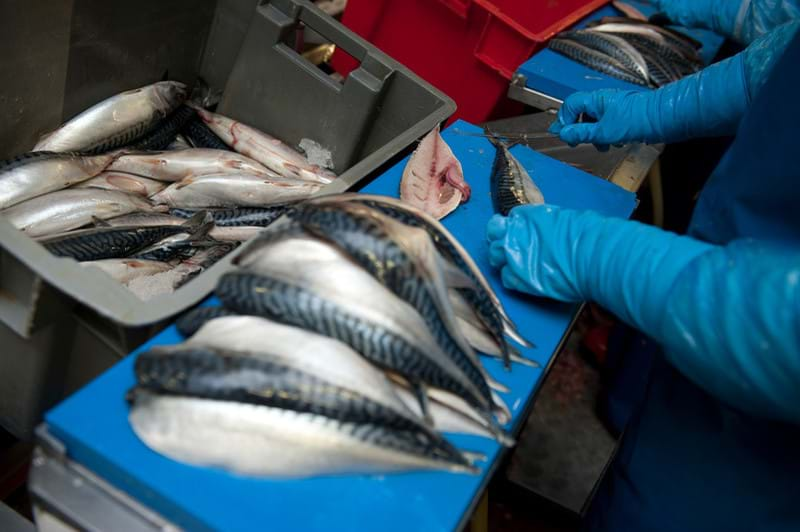Catching sector funding carbon footprint research
The pelagic fishing fleet in Scotland has helped support scientific research into the sector’s carbon footprint. This has helped the industry understand how the carbon footprint of pelagic fish compares to other food products, and where improvements could potentially be made.
In the UK, landings of small pelagic fish make up over 50% of all sea fish landings by weight; most of this is caught by the Scottish pelagic fleet which is based in the north of Scotland and Shetland. The fleet consists mainly of vessels over 40m long which target mackerel, herring and blue whiting in the North Sea and northeast Atlantic.
Frances Sandison, a PhD student at the University of Aberdeen who has carried out research on the pelagic sector said:
The size of the vessels, and the distances they travel off shore to target shoals of pelagic fish, raised questions about the fleet’s carbon footprint.
As a result a study was funded by the seafood industry and several local organisations in Shetland, to assess the carbon footprint of Atlantic mackerel caught by the Shetland based pelagic ships.

This research determined that the Shetland fleet had a very low carbon footprint compared to other food sources. A short study was then commissioned to assess the pelagic fish processing sector which was also found to have a low carbon footprint.
Seeing the success of the initial two studies, a PhD position was created and co-funded by the Scottish Pelagic Sustainability Group, the Shetland Islands council, the University of Aberdeen, the University of Highlands and Islands and the Shetland Fish Producers Organisation to assess the carbon footprint of the entire Scottish pelagic fishing fleet.
Ian Gatt, Chairman of the Scottish Pelagic Sustainability Group, commented:
Discussions around climate change are dominating the agenda so this type of research is very important.
The industry wanted to support this research for two reasons: as a sector we want to understand our impact in order to identify where we could make improvements, and we want to show that we are doing our bit to mitigate carbon emissions
Key findings of the research
The results of this work, published in Fisheries Research journal in 2021, showed that one kilogram of pelagic fish caught by the Scottish fleet had a carbon footprint of 0.452 kg CO2 equivalent. In comparison, the global average carbon footprint for one kilogram of beef is 36 kg CO2 equivalent.
“Our key finding was that Scottish-caught pelagic fish have a very low carbon footprint,” says Frances, “The pelagic sector’s carbon footprint is considerably lower than terrestrial animal source proteins and is actually more comparable to vegan alternatives.”
Key to undertaking this work was the support of the pelagic industry, not just in terms of helping fund the research via the Scottish Pelagic Sustainability Group, but also in providing vital data and information on the fleet.
“I spent a lot of time speaking to vessel owners, skippers, engineers and bookkeepers about fuel consumption and gathering information on vessel landings among other things. There was a lot of trust from the industry which was absolutely vital to making this research happen,” explains Frances.
Why is this research important?
The Intergovernmental Panel on Climate Change estimates that food production accounts for between 21-37% of global human carbon emissions. Whilst only 4% of this figure is attributed to wild capture fisheries, it is important that all industries review their practices and look for areas where improvement might be required.
“Scotland has a target of achieving net-zero emissions by 2045,” says Frances, “At the moment, - approximately two thirds of protein consumed in Scotland are comprised of processed meats, chicken and beef, however this research shows that if the general public replaced even one meal per week with Scottish caught pelagic fish we could see a decrease in protein related dietary carbon footprint. Not to mention the health benefits of eating seafood and importance of supporting local economies.”
For more information on this research please visit the Scottish Pelagic Sustainability Group website.